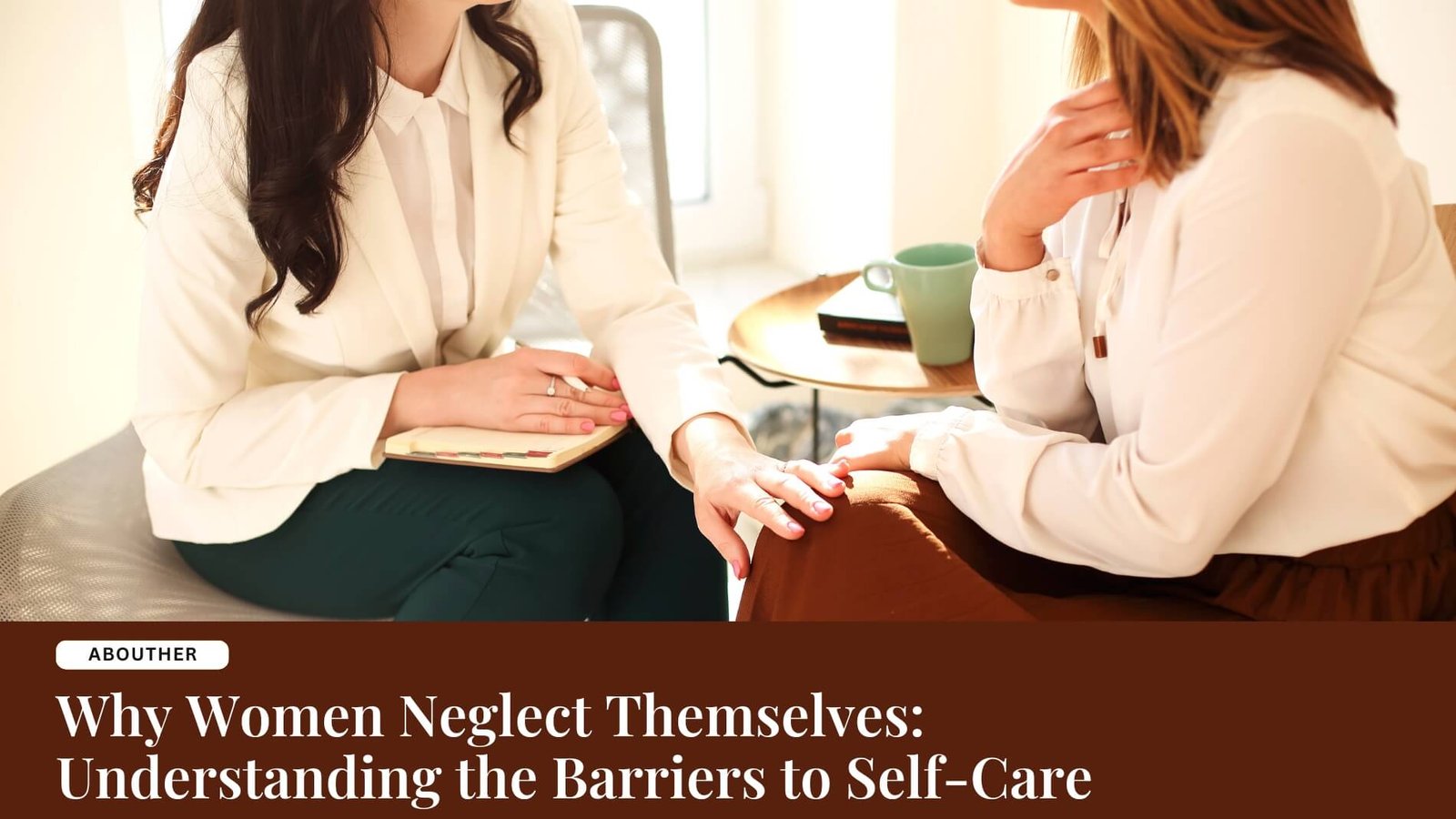Why Women Neglect Themselves: Understanding the Barriers to Self-Care
I recently joined a gym because I am passionate about fitness and strongly believe in the importance of physical wellness, exercise, and movement for improving quality of life, as well as mental and emotional health. However, to my disappointment, I noticed that not many women were present on the gym floor. On average, for every ten men, only two women were working out. I had hoped to see more women embracing fitness, especially with the growing focus on self-care and physical well-being.
A few weeks into it, I met a lady, and we started talking about how exercising is difficult and that being consistent with everything that keeps us women on our toes, it becomes incredibly hard. She told me that she used to be a professional but now is an active homemaker, which she’s incredibly proud of. She also strives to take care of herself while she’s busy taking care of her family, and that I found was truly amazing because, let’s admit, not all of us women folk prioritise ourselves even now. We have great aspirations, but when it comes to execution, self-care takes a back seat for so many of us. So many women get engrossed in giving so much to others that they often forget to care for themselves.
Consider the story of Maya, a dedicated mother and professional who tirelessly juggles her demanding job, her children’s needs, and the household chores. She rarely pauses to breathe, let alone make time for herself. Her days blur into a cycle of responsibilities, and the notion of self-care feels like a distant luxury.
Maya’s story is not unique. It mirrors the lives of countless women who prioritise everyone else’s needs over their own. While self-care is increasingly discussed in today’s culture, many women still feel guilty or selfish for putting themselves first. This neglect can lead to severe consequences, including burnout, anxiety, and chronic stress. The bigger question that needs to be addressed is why women struggle so much with self-care.
Here are a few reasons:
1. The ‘You have to be the caregiver’ mindset:
Women are often conditioned to be caregivers from a young age. Society frequently applauds women for being selfless, nurturing, and putting others first.
2. Tying your self-worth to caring for others:
Most women are conditioned to believe that self-worth is tied to how much they can give to others. As a result, many women feel guilty when they take time for themselves, viewing self-care as an indulgence rather than a necessity.
Also Read: Working Towards a Work-Life Balance
3. Battling Guilt:
Every time a woman thinks of doing something for herself, she’s plagued with self-doubt and guilt, which makes her feel like she’s committing a crime and that something disastrous will happen if things and people are left to themselves even for a while.
4. Multiple Roles and Responsibilities:
Women often juggle multiple roles simultaneously. Whether managing a household, advancing a career, or raising children, the demands on their time and energy can be overwhelming. These responsibilities often leave little time for self-care. Even when they do have time, many women feel compelled to use it to address the needs of others, reinforcing a cycle of self-neglect.
5. The Myth of the Superwoman:
The “superwoman” myth perpetuates that women must excel in every area of their lives without showing signs of struggle or fatigue. This unrealistic expectation can make women feel they must constantly be on the go, neglecting their needs in the process. The fear of being perceived as weak or incapable often discourages them from asking for help or taking time out for themselves.
6. Lack of Awareness and Education:
Even today, many women are not fully aware of the importance of self-care and how it impacts their overall well-being. Without a clear understanding of what self-care entails—beyond spa days and bubble baths—they may not recognise the small, everyday actions that can constitute self-care. This lack of awareness often leads to a misconception that self-care is time-consuming or expensive.
7. Fear of Being Seen as ‘Selfish’:
The fear of being labelled as selfish often deters women from engaging in self-care. There is a pervasive belief that prioritising one’s needs means neglecting the needs of others. This fear is compounded by societal norms that glorify self-sacrifice, making it difficult for women to embrace self-care without guilt.
8. Overwhelm and Burnout:
Constantly being on the go and managing various responsibilities can lead to burnout. When overwhelmed, women may find it challenging to see how they can fit self-care into their already-packed schedules. Ironically, this is when self-care is most needed, but the energy required to initiate it can feel like just another task on a never-ending to-do list.
Also Read: Engaging Hobbies for Women to Cultivate Passion and Creativity
While being there and caring for others is great, neglecting self-care comes at a high cost. When women continuously put others before themselves, they risk experiencing physical, emotional, and mental exhaustion. Over time, this can lead to burnout, a chronic stress that affects every aspect of life. Burnout can manifest as fatigue, irritability, anxiety, and even depression. Furthermore, neglecting self-care can have long-term health implications, including weakened immune systems, increased risk of chronic illnesses, and diminished mental health.
Physically, the body bears the brunt of continuous neglect. Stress-related illnesses, such as hypertension, digestive issues, and migraines, are common among women who do not prioritise their health. Emotionally, women may feel overwhelmed, leading to a decrease in self-esteem and confidence. Mentally, the lack of downtime and reflection can hinder decision-making and problem-solving abilities, further compounding stress levels.
Therefore, women must understand that caring for themselves is not a luxury but a necessity. Prioritising self-care is crucial not only for their well-being but also for their ability to care for others effectively. When women are well-rested, emotionally balanced, and mentally clear, they are more capable of supporting those around them. Self-care enables women to recharge, allowing them to engage in their roles with renewed energy and enthusiasm. It also sets a positive example for the next generation, showing young girls that it is okay to prioritise their needs.
In the words of Barbara De Angelis, “Women need real moments of solitude and self-reflection to balance out how much of ourselves we give away.”
Share This On Social
![Sangeeta-Relan-AH-525×410[1]](https://aboutherbysangeeta.com/wp-content/uploads/2024/06/Sangeeta-Relan-AH-525x4101-1.jpeg)
I’m Sangeeta Relan—an educator, writer, podcaster, researcher, and the founder of AboutHer. With over 30 years of experience teaching at the university level, I’ve also journeyed through life as a corporate wife, a mother, and now, a storyteller.

















